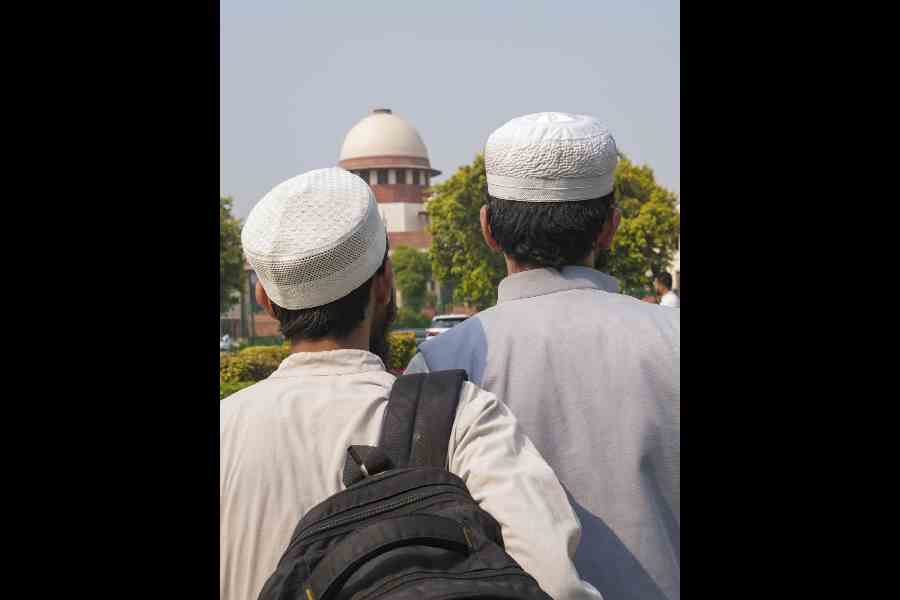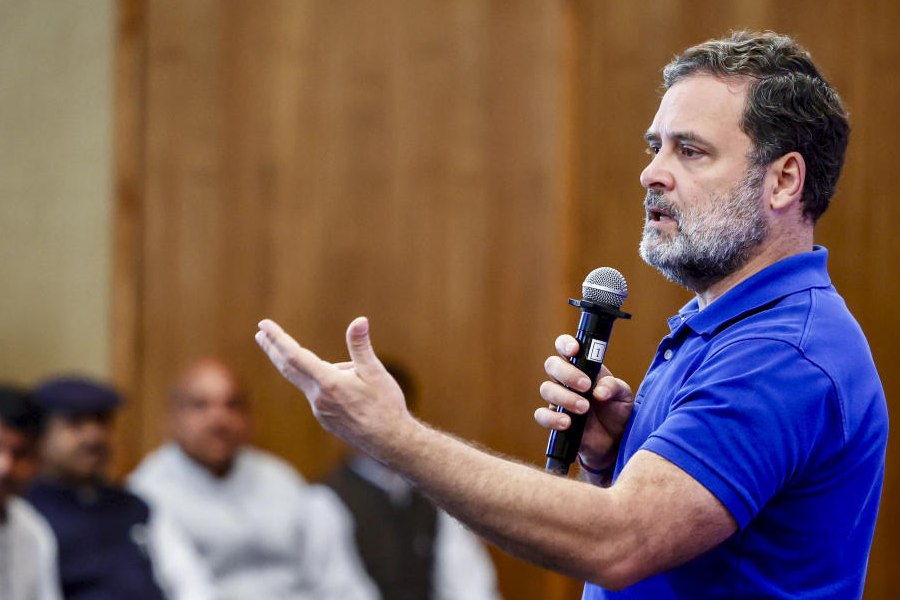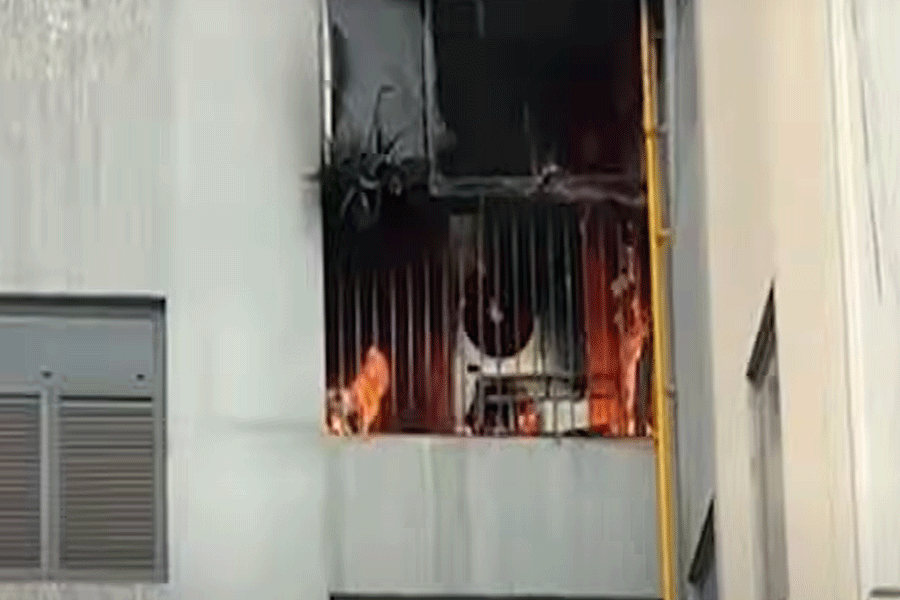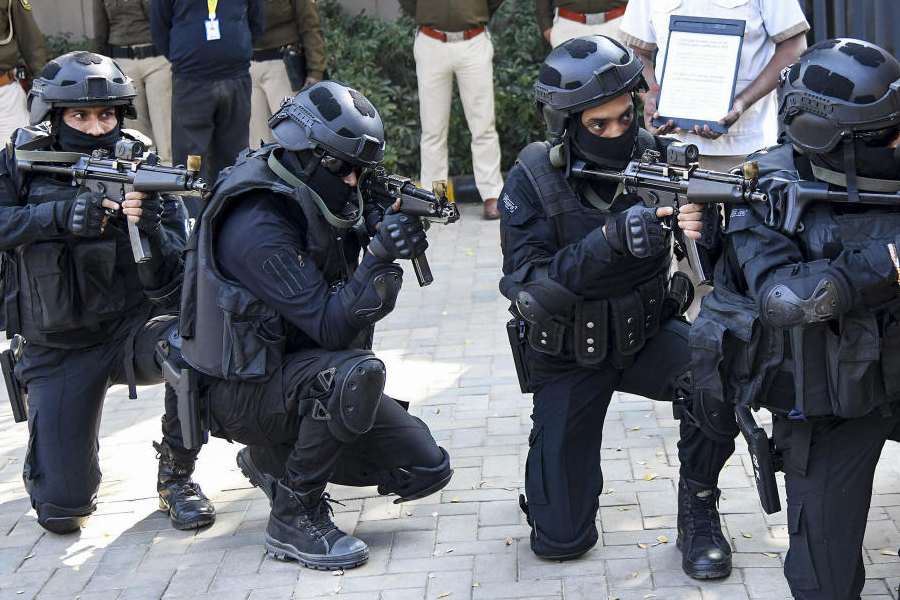The Supreme Court on Wednesday indicated it could stay certain provisions of the Waqf Amendment Act, 2025, including the induction of non-Muslims in the Central Waqf Council and state waqf boards, denotification of properties declared as waqf and granting of unbridled powers to district collectors to determine the validity of waqf properties.
A three-judge bench headed by Chief Justice of India Sanjiv Khanna asked solicitor-general Tushar Mehta, appearing for the Centre, whether the government was open to accommodating non-Muslims in Hindu endowment boards. The bench, which also had Justices Sanjay Kumar and K.V. Viswanathan, took exception to Mehta’s insinuation about the religious identity of the three judges.
However, the court felt that there were certain positive aspects of the new act — passed by the Narendra Modi government amid widespread protests from the Opposition and Muslim groups — that the Centre needed to highlight when arguments resume on Thursday.
The two-hour-long hearing of more than 120 petitions and cross-petitions remained inconclusive. The matter will be heard again at 2pm on Thursday.
CJI Khanna indicated at the end of the day’s hearing the court’s proposal to pass an interim order that would lay down the following:
- Properties declared by courts as waqf properties should not be denotified till such time the Supreme Court hears the challenge to the Waqf Amendment Act, 2025. This includes waqf-by-user properties, or those that have been used for long for charitable purposes as waqf properties even though the occupants may not have any formal documents in support of possession rights.
- A stay on the provision of the new Act that mandates that a waqf property cannot be treated as one during a probe by a collector into whether it is government land or is situated on government land.
- All members of the state waqf boards and the Central Waqf Council must be Muslim, except the ex-officio members.
“When a law is passed, the courts do not pass an order at the admission stage. But in this case, we think that if there is a ‘waqf-by-user’ property and it is identified, then there are grave ramifications,” CJI Khanna remarked.
At the conclusion of the day’s hearing, the bench said: “One thing that is very disturbing is the violence that is taking place. If the matter is pending here, it should not happen.”
The court did not mention Bengal, which has witnessed violence over the changes to the Waqf Amendment Act.
“Yes, they (rioters) think they can pressurise the system by this type of violence,” Mehta said, even as senior advocate Kapil Sibal, representing some Muslim organisations, remarked: “Who is pressuring who, we don’t know.”
Justice Viswanathan asked Mehta to explain the rationale behind having non-Muslims in the waqf boards and council and pointed out that the Hindu charitable endowment acts do not provide any leeway for the inclusion of non-Hindus in their boards.
CJI Khanna said: “Mr Mehta, are you saying that from now on you will allow Muslims to be part of the Hindu endowment boards? Say it openly.”
As the bench continued to question the Centre over the inclusion of non-Muslims in the waqf boards and central council, Mehta said: “By that logic, your lordships should not be hearing this case.”
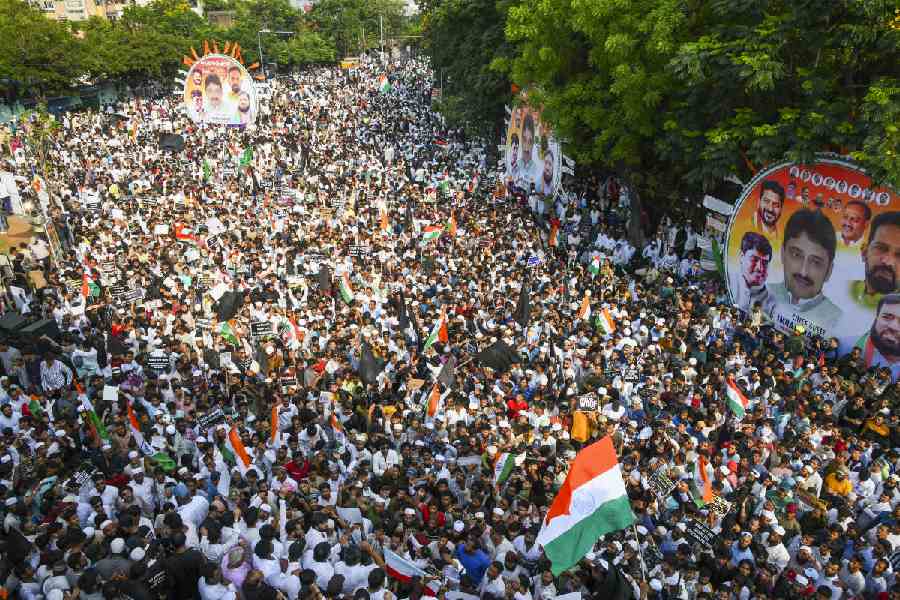
People gather near the statue of Dr BR Ambedkar to protest against the Waqf (Amendment) Act, in Hyderabad, April 13, 2025. PTI
Justice Khanna shot back: “What? Mr Mehta, when we sit over here, we lose our religion. For us, both sides are the same. How can you compare it with the judges? Why not have non-Muslims also in the advisory boards of Hindu endowments then?”
Justice Kumar asked Mehta if there were non-Hindus in the Tirumala Tirupati Devasthanam Board or other such Hindu temple boards.
During the arguments, the bench told Sibal that some “genuine concerns” had been raised in the amended act. “We are told Delhi High Court is built on waqf land. We are not saying all waqf-by-user is wrong, but there is genuine concern in the act,” the court remarked.
The bench orally observed that the move to remove the “waqf-by-user” rights may not be justified as many mosques were constructed centuries ago.
“Now, many masjids are constructed in the 13th, 14th or 15th century. Now you require them to produce sale deeds, which is impossible… as for waqf-by-user is concerned... it is difficult to register. You (Centre) have a point, it is misused. But you cannot say there is no genuine waqf-by-user,” the court said.
The apex court also took exception to the provision in the amended act that seeks to overrule any judgment or decree passed by courts relating to a waqf property as not binding. “The legislature cannot declare any judgment or decree of court as void. You can remove the basis of a law but you cannot declare any judgment void or not binding.”

